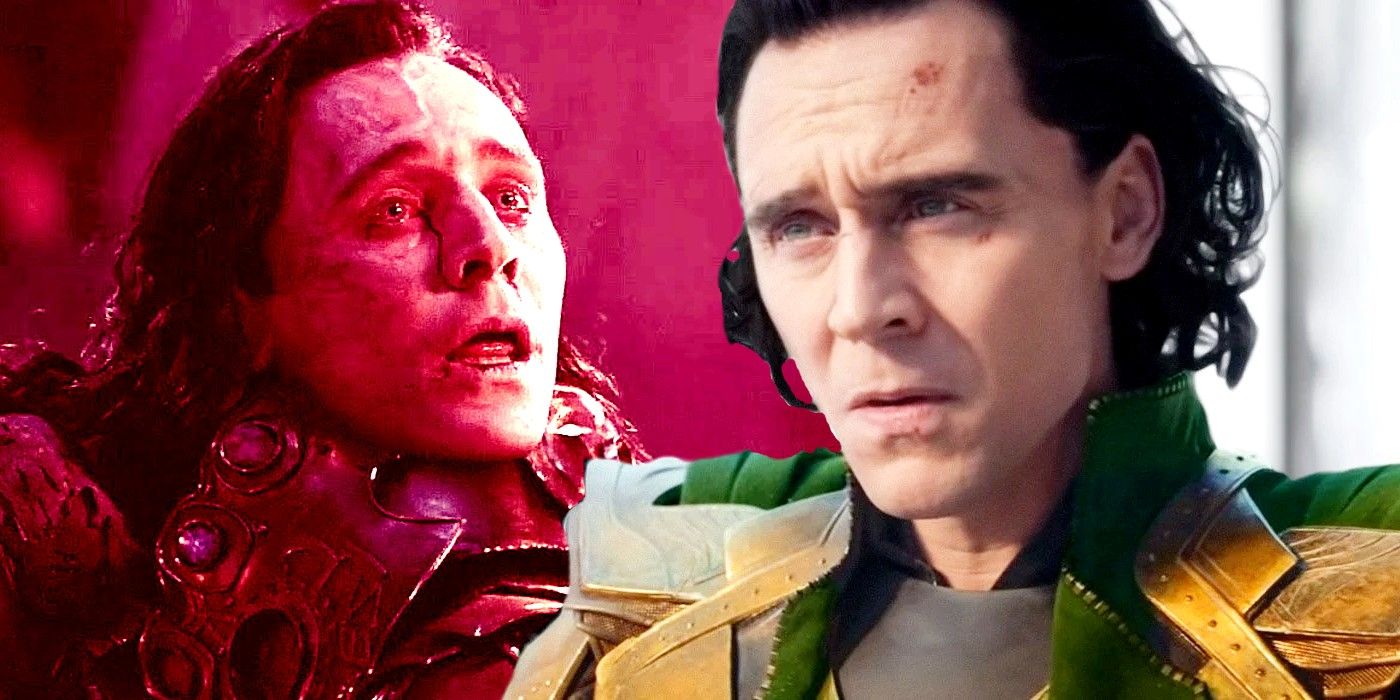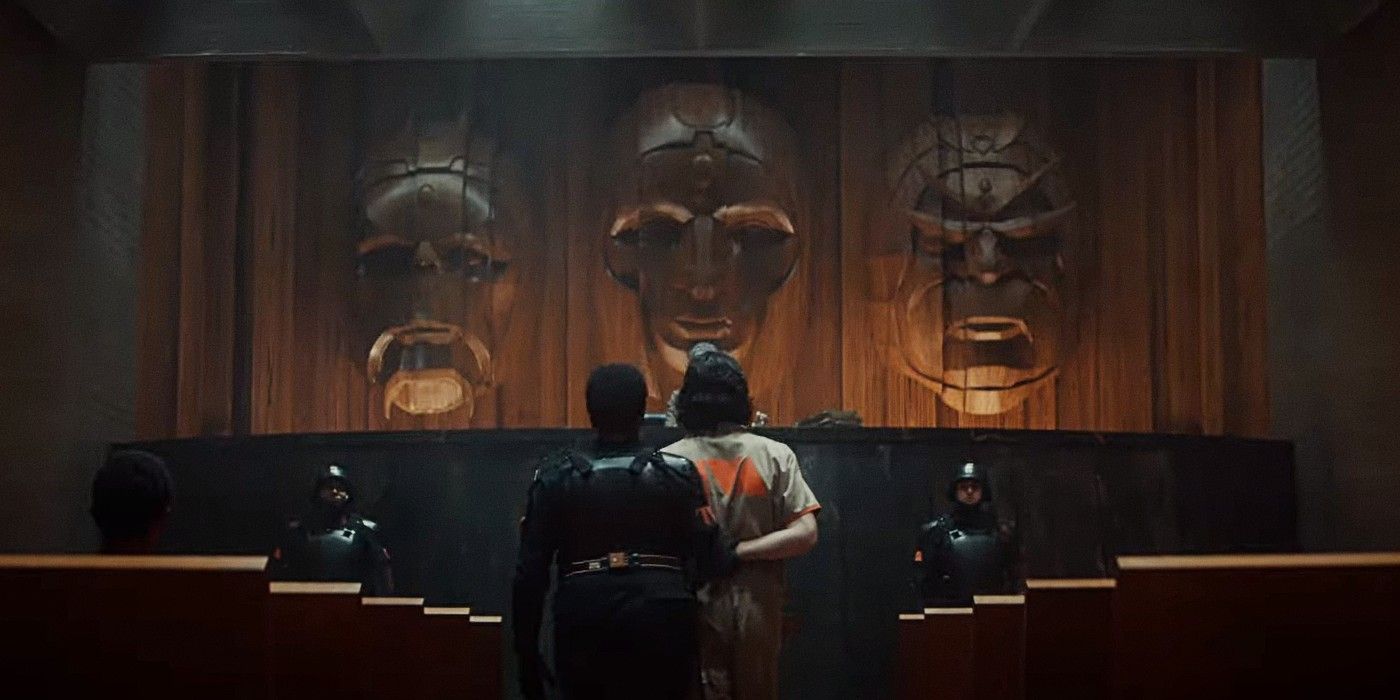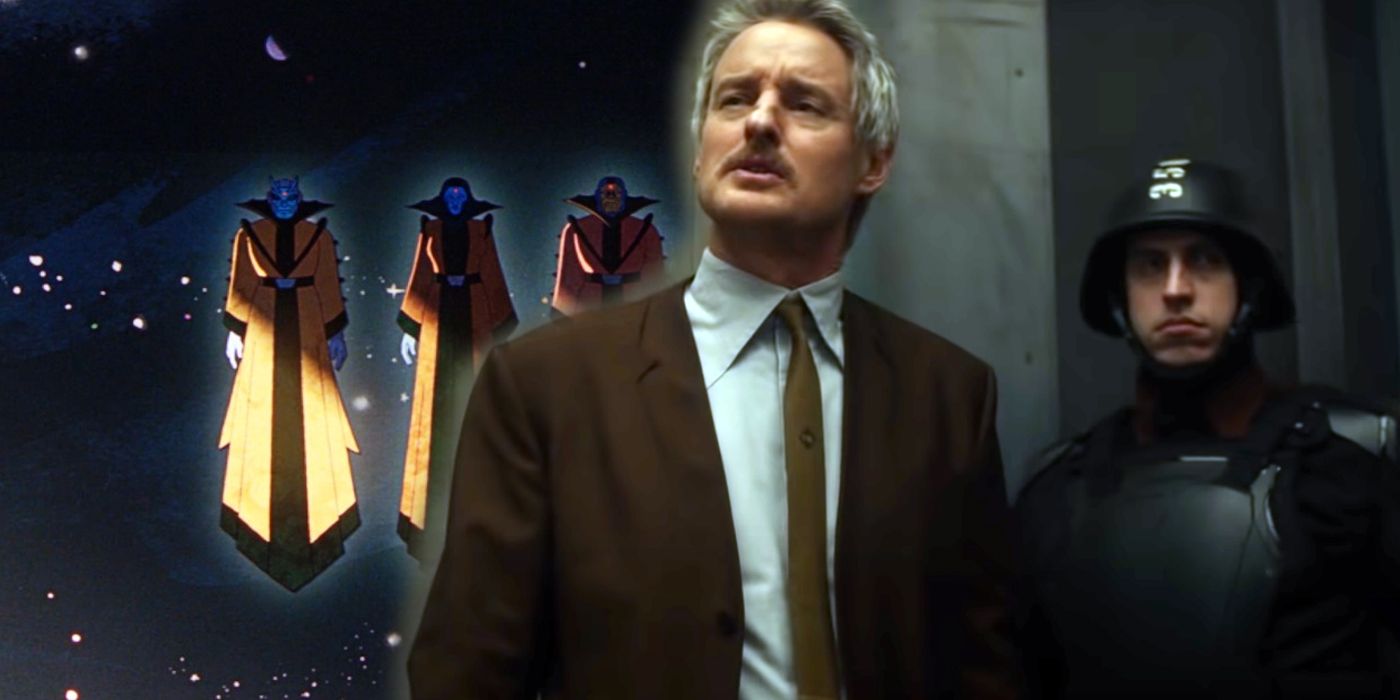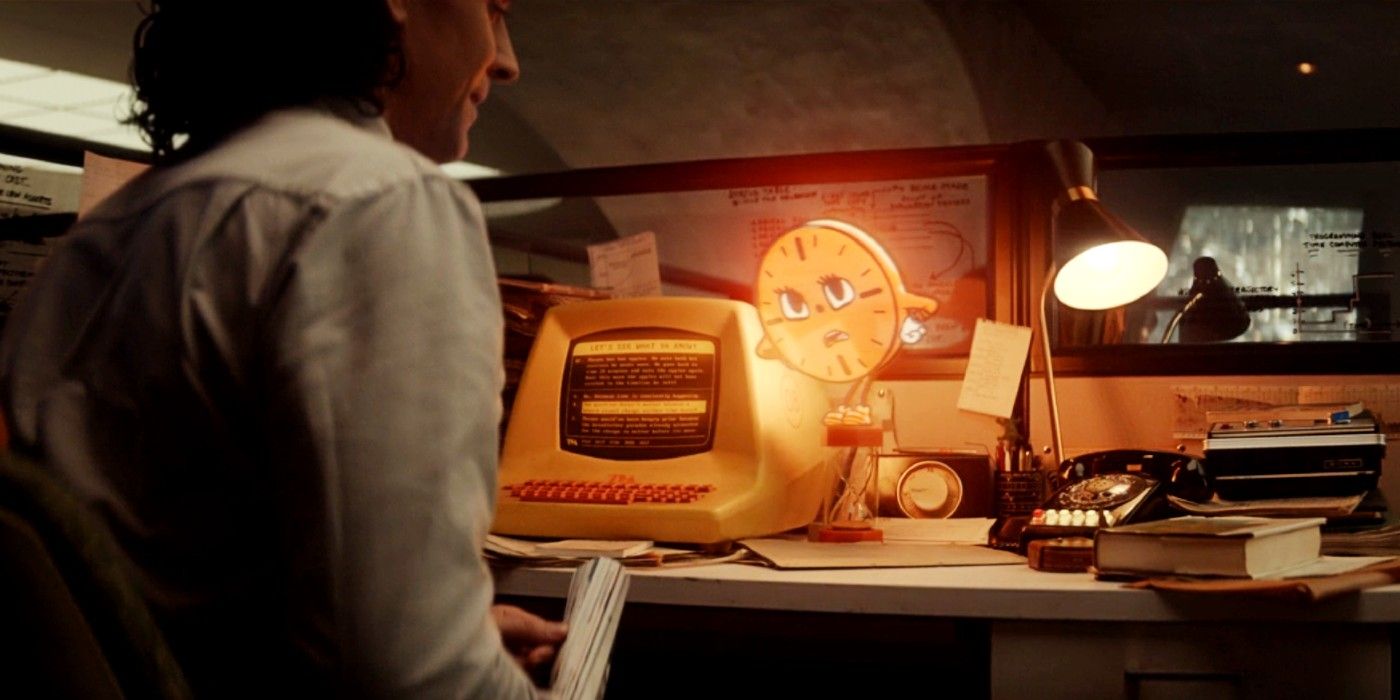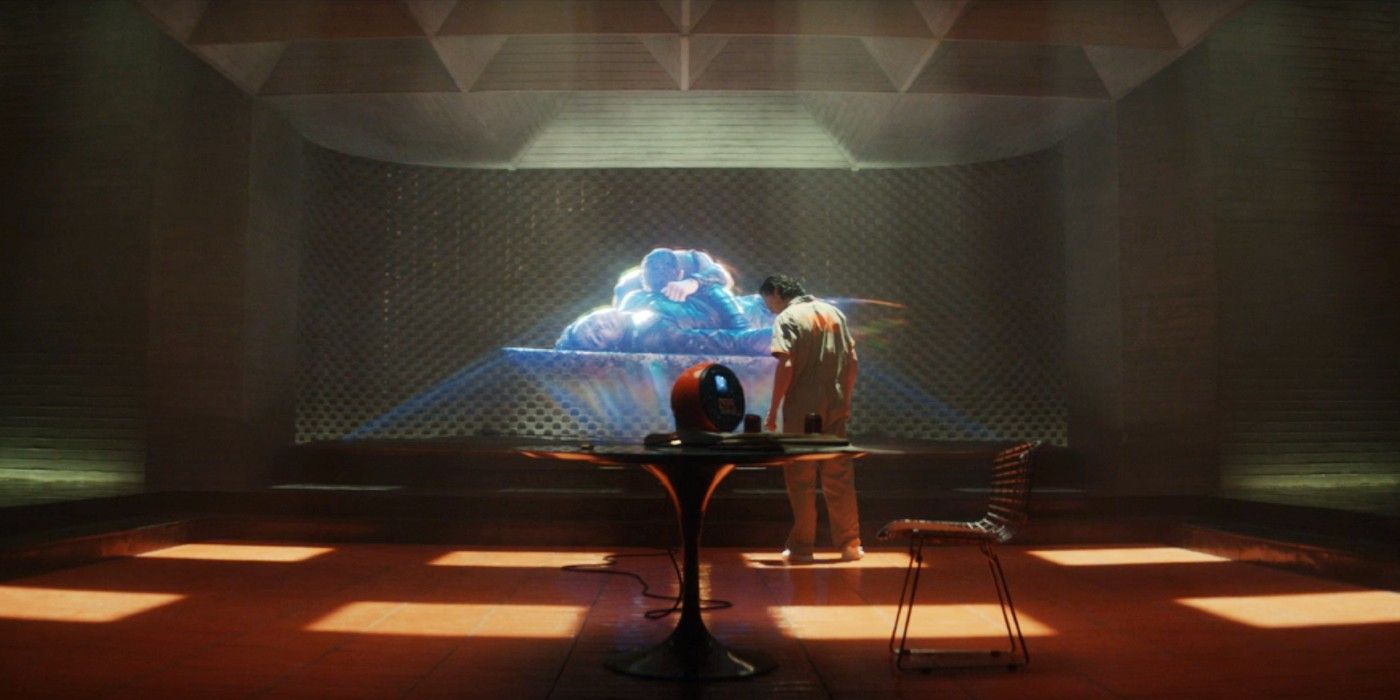Warning: This article contains spoilers for Loki.
As with WandaVision, Loki leans into the mystery box style of story-telling, inspiring theories, speculation and rampant self-sustaining hype: but what if the most outrageous theory about the show is that the God of Mischief has been dead all along? Not dead as in he never made it out of Thanos' grim grip in the opening of Avengers: Infinity War, but killed in the first episode and left to play out his dying thoughts.
Considering that traumatic death, Loki was an unexpected bonus for fans who wanted to see more of the God of Mischief in the MCU, but the time travel element of Endgame's plot offered both an opportunity and a need to close some loopholes. The TVA is a means to control time travel, through the establishment of the multiverse rules (even if the Time-Keepers appear to fascist overlords) to stop it becoming a trick to undo any upcoming traumatic event in the MCU. And resurrecting Loki to work alongside the other brainwashed TVA variants made a lot of sense given his natural tendencies towards mischief and chaos. In effect, the show s is a chance of a second chance, a full-stop, and a tantalizing set-up for the future - and specifically, the Multiverse of Madness.
There has long been speculation around Loki causing the Multiverse of Madness set to appear in Doctor Strange 2, but that may depend on him making it through the show unscathed. And looking at how his arc is currently playing out, that is looking more and more unlikely. In fact, he may have already been doomed. Here's why Loki might have been dead all along and why all of his actions in Loki could be him atoning for his past sins in a tragic epilog to his MCU story.
Loki's Survival Makes No Sense
The starting point of this Loki theory is established in what the show specifically tells Loki himself: that the TVA destroy Loki variants because they're problematic. In a quick montage showing every Loki variant in the MCU so far, the Time-Keepers' agents reveal that they have encountered - and destroyed - "almost" more variants of Loki than anyone else in existence. Each comes with their own powers and profile, but each is united in how dangerous they are because of who they are. Thus, the idea of the TVA hiring Loki and giving him a chance to meet the Time-Keepers makes no sense, particularly as it's been revealed that the Time-Keepers are vulnerable enough to require active guards. In fact, it sounds like something a self-important egotist would imagine as a fate for himself.
Theory: Loki Was Killed In The TVA
The show also establishes that Loki has some powers that make reprogramming him (or his variants) more difficult - his mind is "too strong", which sounds like bluster from the God of Mischief, but which is actually shown when Sylvie attempts to enchant him. In short, the far more likely reality would be that the TVA would adhere to its prime directive and destroy him as a potential threat to the Time-Keepers. Because while Renslayer allowing Mobius to use Loki as a temporary field agent establishes her authority, the idea of a group as powerful as the Keepers potentially allowing a being the path to becoming as powerful as them is illogical. In the comics, they were specifically threatened by Scarlet Witch's children, thanks to her status as a Nexus Being, and it's hard to imagine that their self-preservation instincts are any duller in the MCU.
In other words, it makes more sense that the Time-Keepers simply told the TVA to destroy Loki to stop him from potentially rivaling them for power. And if that is the case, it fits that everything Loki sees from the earliest moments of episode one when he's captured throughout the rest of Loki's episodes, is his dying fantasy played out in slow motion as he wrestles with the weight of his conscience.
Time Moves Slowly In The TVA (Like In The Quantum Realm)
For the theory that Loki is dying to make sense, time has to exist in different terms. Similar theories - like the Sandy Death Theory for Grease - depend on the established idea that the final moments of life are given up to a montage of life events to explain how time is extended, but Loki and the MCU actually have a firmer answer. As the show has already specifically said, time works differently in the TVA - prompting some suggestions that the Time-Keepers and their temporal organization exist in the Quantum Realm. Given the fact that the show-makers have been careful not to contradict the rules of time travel established in Endgame, it makes sense that their time travel is achieved by traveling through the Quantum Realm to different points in the timeline. Thus, there's no reason to think of time working in the same way, offering a simple solution for how Loki's final moments play out over several days in his own mind.
Loki's Events Represent Loki's Regrets & Lost Dreams
The biggest question after establishing how this theory could work is why it plays out the way it does specifically. Specifically, why would Loki imagine himself first working alongside the TVA, then helping Sylvie and finally - presumably - taking on the Time-Keepers to help the Lady Loki variant achieve her own plan? The answer could be in Loki's own need for redemption. Throughout his appearances in the MCU, Loki has tended towards redeeming himself, even when attempting to betray Thor (more as mischief than malice), and the retcon of the Mind Stone influencing him to commit his most heinous crimes seems to fit the idea of him as an anti-hero rather than an outright villain. After all, if Scarlet Witch can kidnap an entire town, Loki can be manipulated into murder and be redeemable.
Looking at each of the major events of Loki so far, they chart a path through Loki's previous crimes. His helpless experience alongside those people dying on Lamentis parallels his and Thor's failure to save Asgard's victims during Ragnarok. Also, it can surely be no coincidence that the moon Loki and Sylvie find themselves on is literally called LAMENT-is. The implication of grief and sorrow for the past is impossible to overlook there, even if Loki can do little about it. On top of that, Lady Loki represents the side of himself he could never express, in terms of Loki's sexuality and gender identity. Because despite the affirmation of his romantic past, it's not something he's been able to show as part of the MCU, partly because he was traditionally presented as a villain. Then there's the issue of "saving the timeline", which could be his way of atoning for attempting to help Thanos during the Invasion of Earth in 2012 that would have made him complicit in unthinkable genocide. In short, Loki's death knell is a fantasy of him reclaiming his image and becoming what Odin wanted him to be all along - the king he assumed he could always be.
Loki releases new episodes every Wednesday on Disney+.

